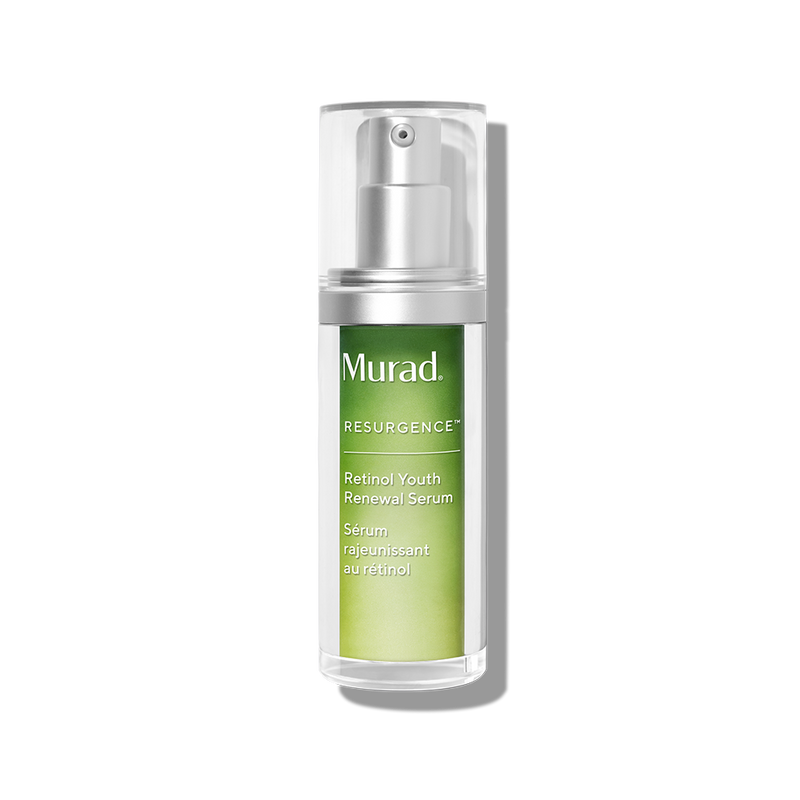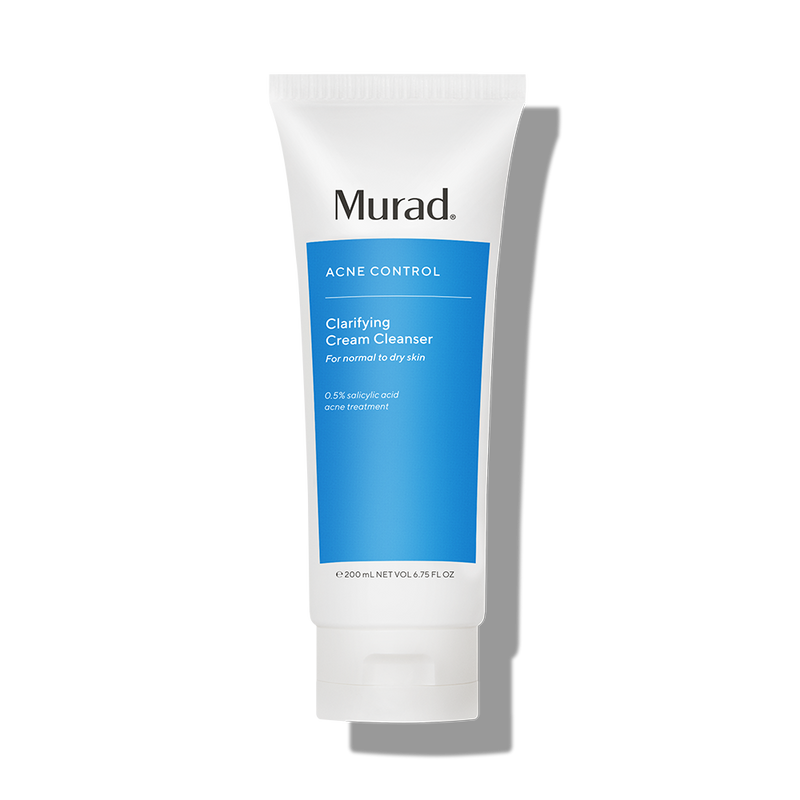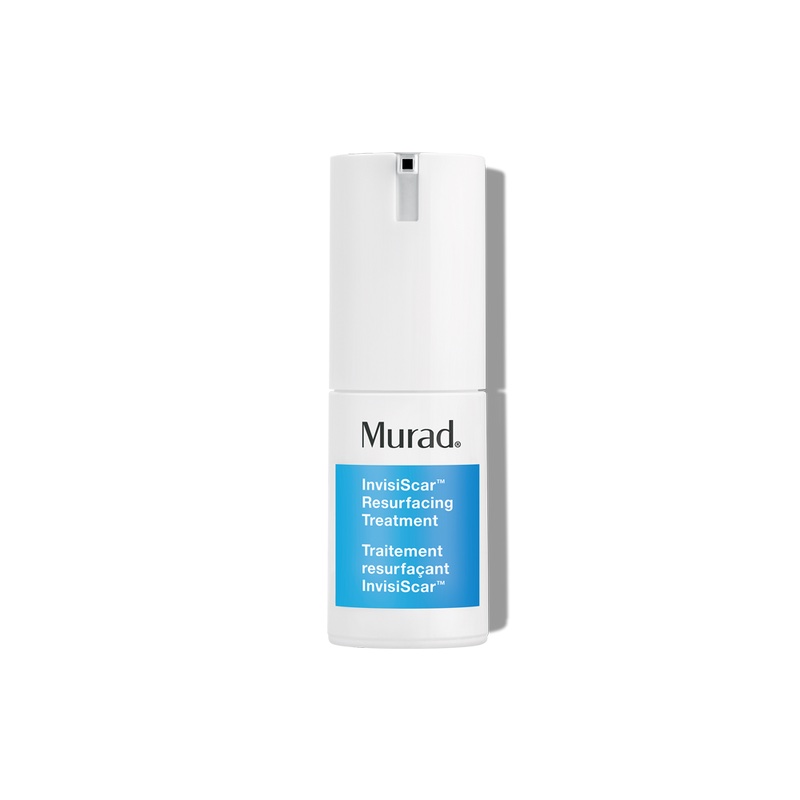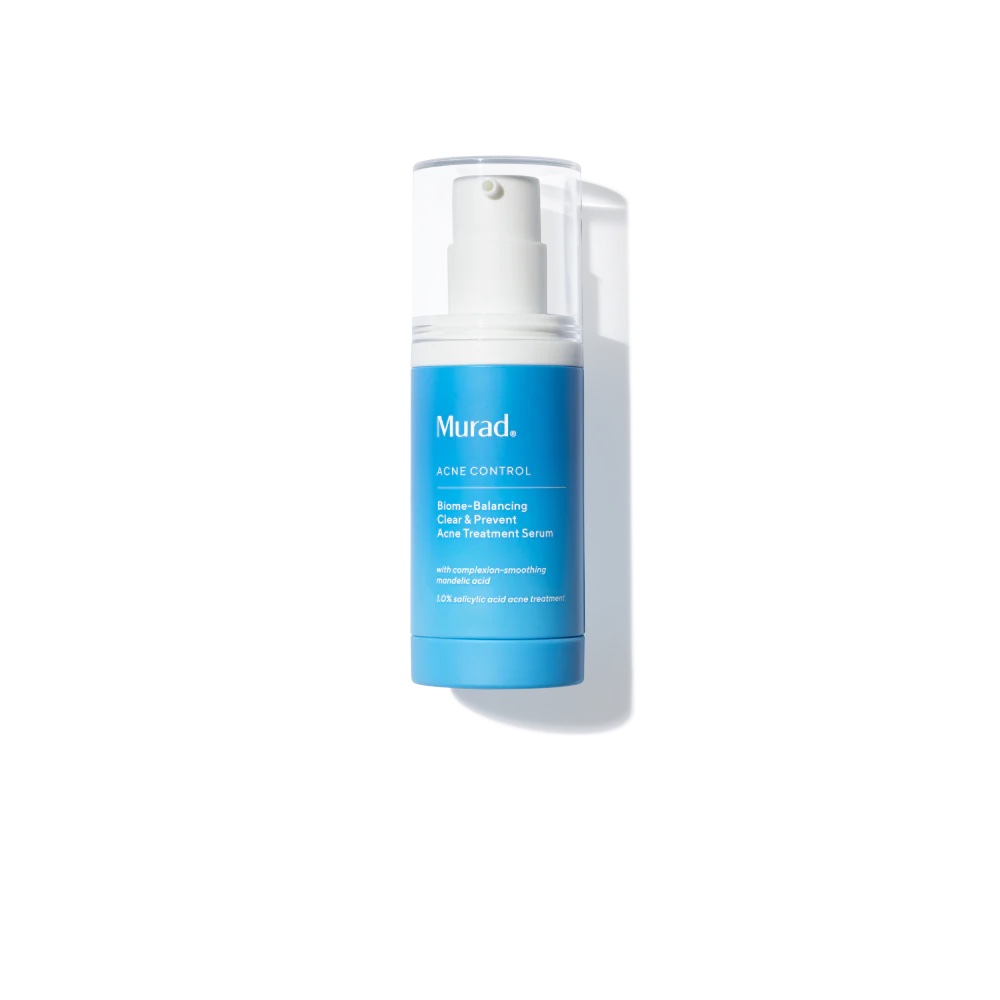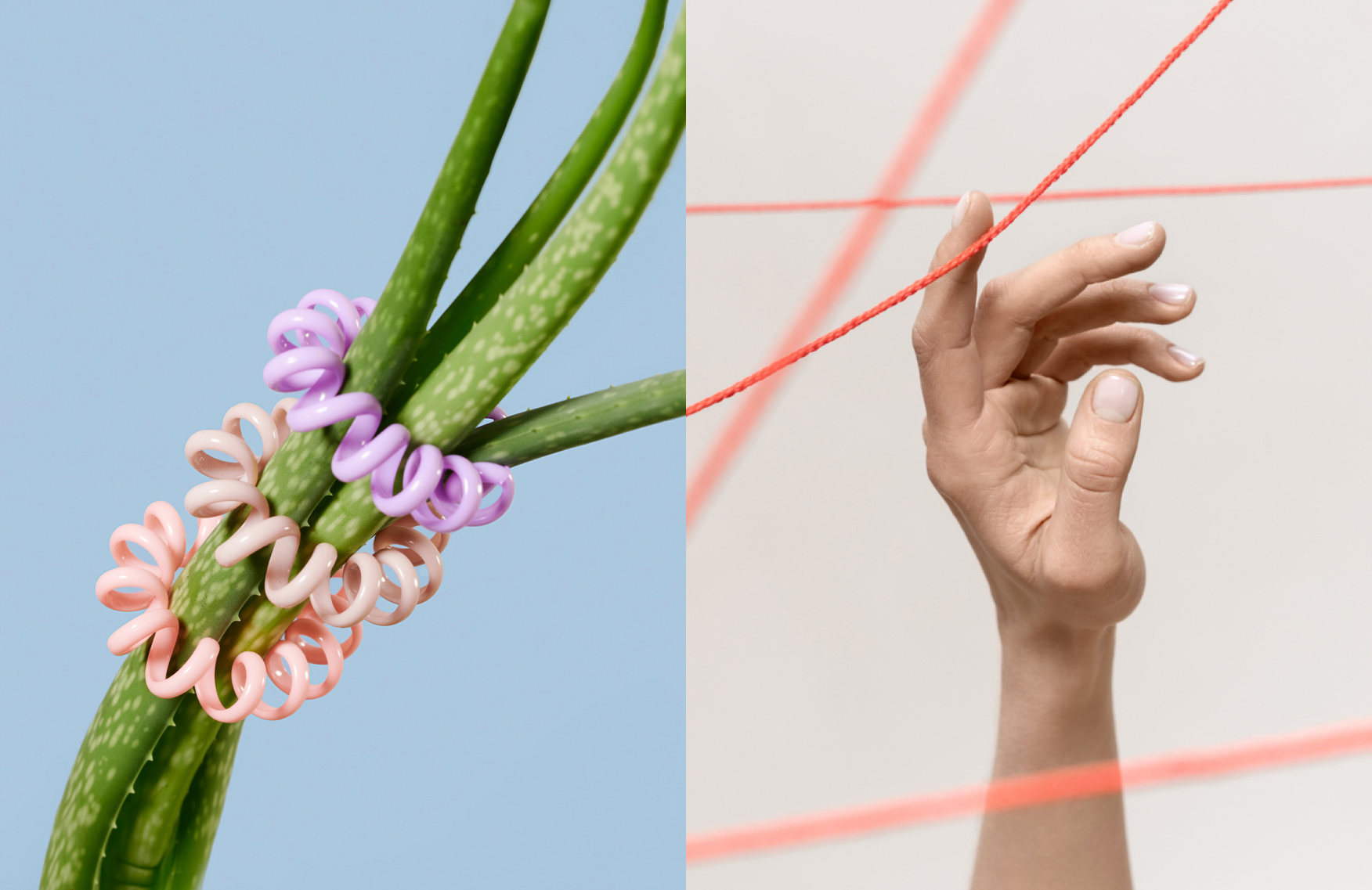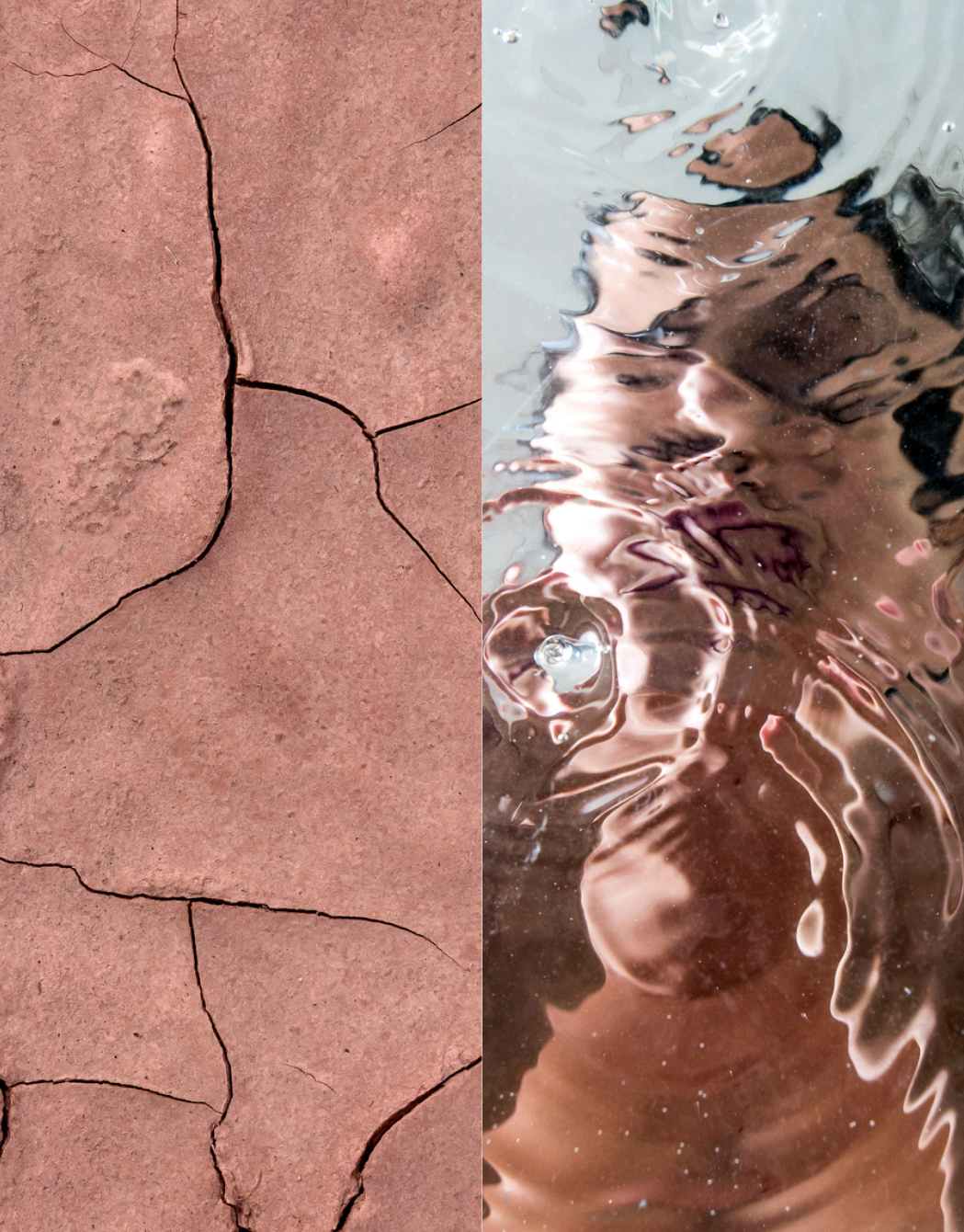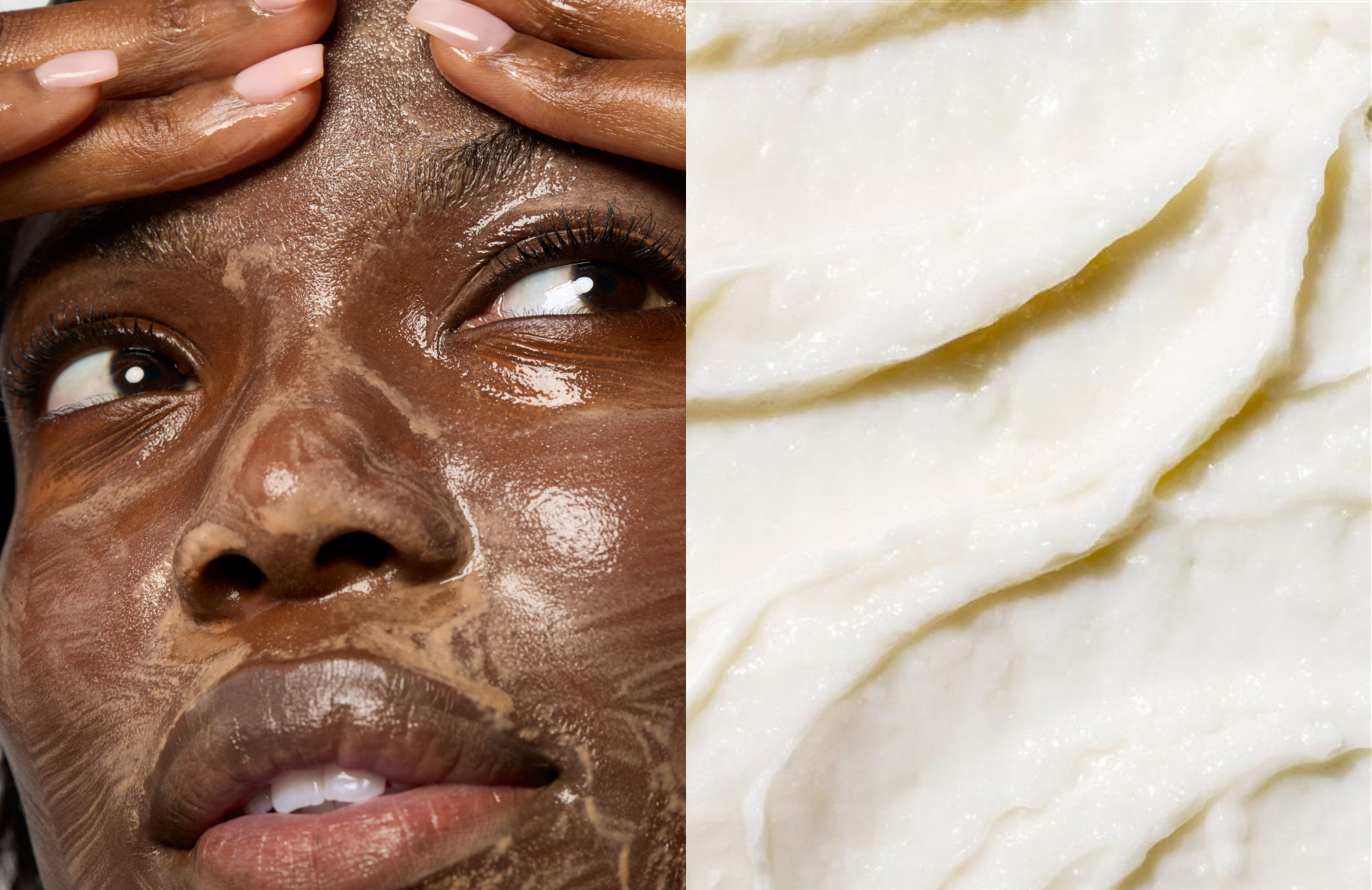You asked, we answered: Is retinol good for acne?
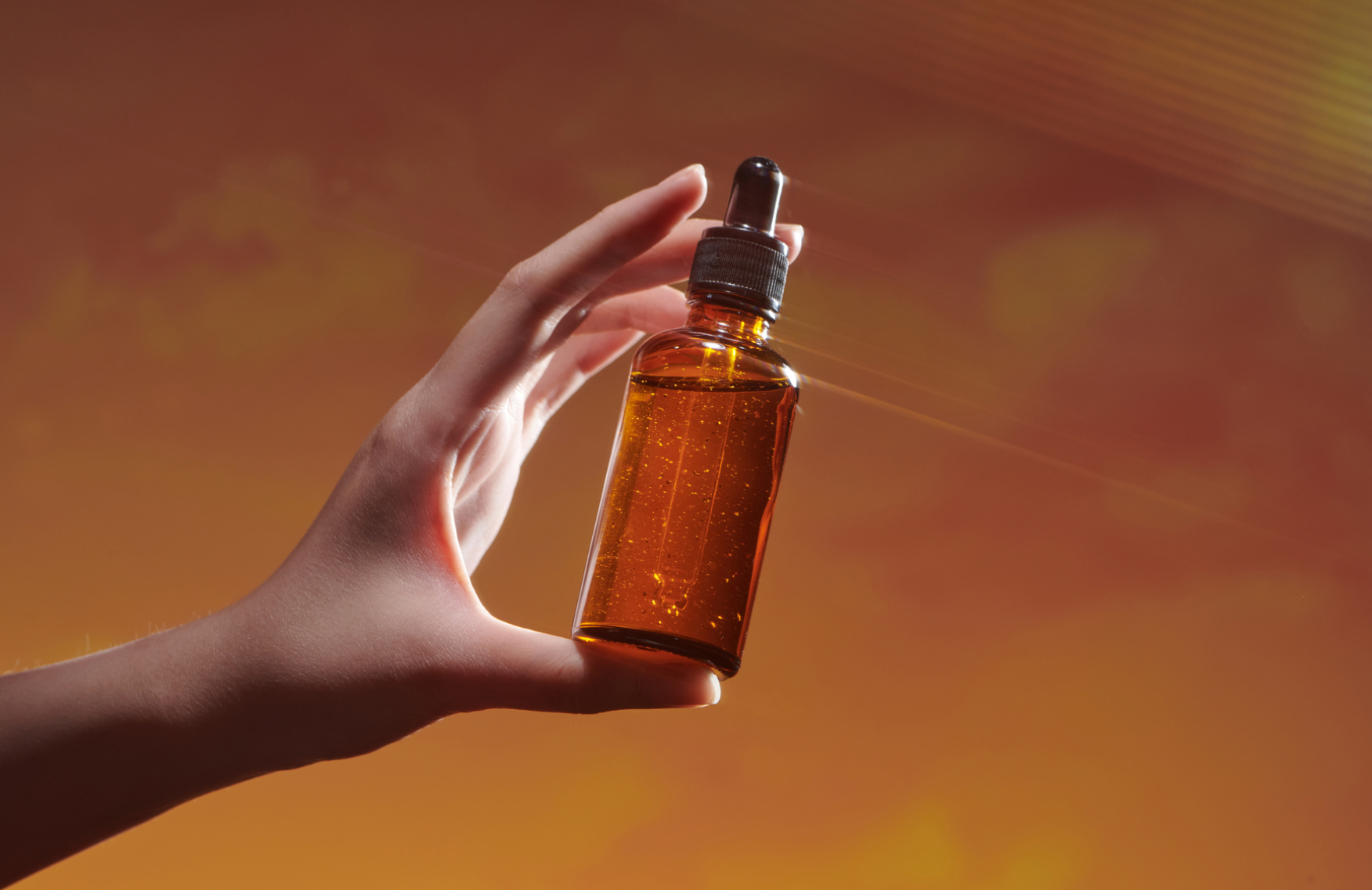
Feeling disheartened by acne treatment products? One ingredient could breathe new life into your acne skincare routine: retinol.
“I think every acne patient should be offered a retinoid,” says dermatologist Leela Athalye of Orange Coast Dermatology in California. “Especially if the patient isn’t pregnant or trying to be. Retinoids are a multi-action solution in one step that help treat acne, prevent it, and even treat scars.”
Here, Athalye and Allison Marks, Dr. Howard Murad’s resident holistic esthetician and senior manager of education content help break down why retinoids might be the missing yet mandatory complement to acne ingredients like salicylic acid, azelaic acid and more.
How do retinoids work?
Retinoids (an umbrella term for all the derivatives) are a form of vitamin A that seemingly reverse the signs of aging—including sagging and static wrinkles. Fast fact: Retinol’s original use was to treat and clear acne.
Retinoids work by stimulating cell turnover—this is when new, plump cells push up towards the skin’s surface and cause dead skin cells to flake off.
How does acne start?
Acneic skin is triggered by a disruption in the natural cell turnover process (aka, follicular hyperkeratinization, or an overproduction of skin cells near the top of the pore). Acneic skin also experiences seborrhea (excessive sebum production).
When overproduced dead skin cells and oils combine, they create a microscopic pouch called a microcomedone. Every pimple starts as a microcomedone long before that whitehead, blackhead, pustule or cystic acne makes its unwelcome appearance.
Once the microcomedone forms, the pore thickens and the opening narrows, and inflammation begins. Now, dead skin cells and oils are trapped and can’t reach the skin’s surface.
How do retinoids work on acne?
Retinol works on acneic skin by stimulating cell turnover. By encouraging new cells to the surface, dead skin cells slough off before they can get trapped in the pore—stopping acne before it can start.
Does retinol help acne scars and post-inflammatory hyperpigmentation?
The short answer: Yes! Scientific data shows that consistent use of retinoids:
- Improves acne scarring and overall skin texture
- Helps inhibit the biological process that causes post-acne dark spots on all skin types and tones. This is important because “Acne impacts skin of color specifically because patients with skin of color are more likely to have persistent hyperpigmentation,” Athalye says
- Helps block inflammatory pathways that are triggered by overproduction of skin cells, excess sebum and blocked pores
Can I use an over-the-counter retinol in my acne skincare routine, or do I need a prescription?
Of course it’s best to team with a dermatologist before starting any retinol regimen. But if that’s not an option, reach for a clinically proven over-the-counter formula. Clinical trials that measure the effectiveness of various topical retinoids on acne show that the type of retinol used won’t impact your results.
What about the retinol purge?
Marks says, “Purging is a brief period where skin may be adjusting to the product. It’s important to note that purging is different than a reaction—a reaction would be if the purge lasts well beyond that adjustment period” which can be anywhere from 2 to 4 weeks.
What causes the retinol purge?
“Purging happens because retinol speeds up the cell turnover process. This expedites removal of everything that has been brewing beneath the skin—like microcomedones, whiteheads, blackheads and inflammatory lesions,” Marks says. “When we expedite cell turnover, the breakouts move from the bottom layers of the epidermis to the top layers.”
Is it gross? Kinda. But stick with it: the retinol purge will pass, and the future results are worth it.
What do I do if my acne-prone skin purges from retinol?
Marks advises, “If you begin to purge, reduce your application from nightly to two times a week and slowly work your way up to daily application. You can also minimize the number of actives like AHAs and BHAs during this time, or buffer your retinol by applying a moisturizer first.”
How does retinol fit into my current skincare regimen?
“Retinol is a foundational ingredient to include in your nighttime skincare regimen, and it’s simple because you’re just adding one extra step,” Marks says. “Simply cleanse, allow the skin to dry and then apply your retinol. From there, apply a moisturizer for your skin type. No matter what skincare ingredients you’re using, it’s essential to include an SPF during the day.”
To avoid any potential sensitivity when using retinol for acne, use salicylic acid products during the day, and retinol at night. Marks also gives this gentle reminder: “Choose products that are well formulated. Don’t play chemist by mixing ingredients on your own. Trust the cosmetic chemists who know what’s best for you and your skin.”
Another reminder from our pros: Retinol is NOT a spot treatment. It’s only efficacious if you use it as a full face and neck treatment.
The views expressed in this article do not necessarily represent the views of Murad, and are for informational purposes only, even if the advice of physicians and medical practitioners are included. This article is not a substitute for professional medical advice, diagnosis or treatment, and should not looked be considered specific medical advice.
References for this information:
Dermatology and Therapy, 2017, volume 7, issue 3, pages 293-304
American Journal of Clinical Dermatology, 2019, volume 20, issue 3, pages 345-365
Acne.org website, What is acne
Cleveland Clinic website, Retinol
